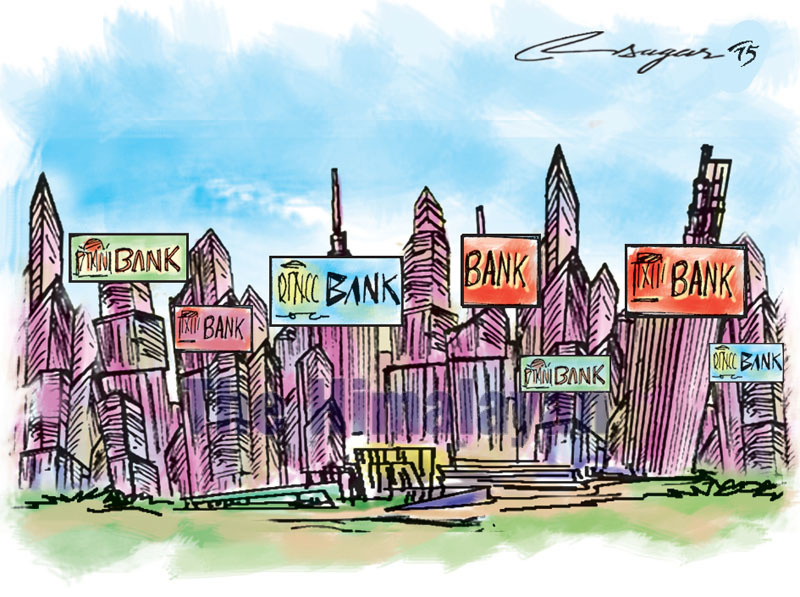Credit disbursement down as banks exercise caution
Kathmandu, November 29
Credit disbursement of commercial banks has come down by almost 18 per cent in the first four months of the current fiscal year.
As per the statistics maintained by Nepal Bankers’ Association (NBA), the collective loan disbursement of 28 commercial banks stood at almost Rs 155 billion in the first four months of fiscal 2019-20 against Rs 189 billion credit floated by commercial banks during the same period of the previous fiscal year.
However, the deposit collection of commercial banks has increased by almost 7.4 per cent in the review period.
As a result, the credit to core-capital-cum-deposit (CCD) ratio — the prudential lending limit of banks — stands at 77.13 per cent. Nepal Rastra Bank (NRB) has fixed 80 per cent CCD ratio limit for banks.
Statistics show that commercial banks were able to collect Rs 118 billion in deposits in the first four months of the ongoing fiscal against Rs 110 billion they had collected during the same period of 2018-19 fiscal.
As per bankers, the banking sector is trying to be a bit cautious in terms of credit disbursement to cope with possible credit crunch in future. “The deposit collection growth among banks is not impressive. A wider gap in deposit collection and credit disbursement will directly affect country’s financial stability,” said a banker seeking anonymity.
In a bid to cope with possible shortage of loanable funds in the banking industry, banks and financial institutions (BFIs) try to attract fresh funds by offering high interest rate on deposits.
However, bankers say that deposit collection has not been satisfactory in the initial months of the current fiscal year.
Along with banks being cautious in credit disbursement, the demand for credit in the market is also not impressive, as per NBA. Since construction works of various development projects have not been expedited and capital budget spending of the government is lethargic, the demand for large credit among businesses in the market is comparatively low compared to last year, informed NBA President Gyanendra Dhungana.
As per Dhungana, sales of different construction materials have been affected lately following the government’s delay in issuing payments leading to low demand for credit in the construction industry.
“The government should address the concerns of the contractors which is key to expedite project works. Once development works gather pace, the demand for credit will automatically rise,” he added.






